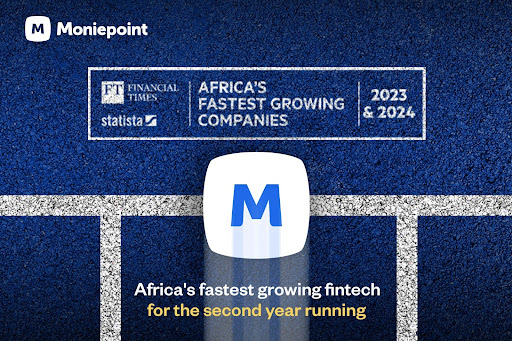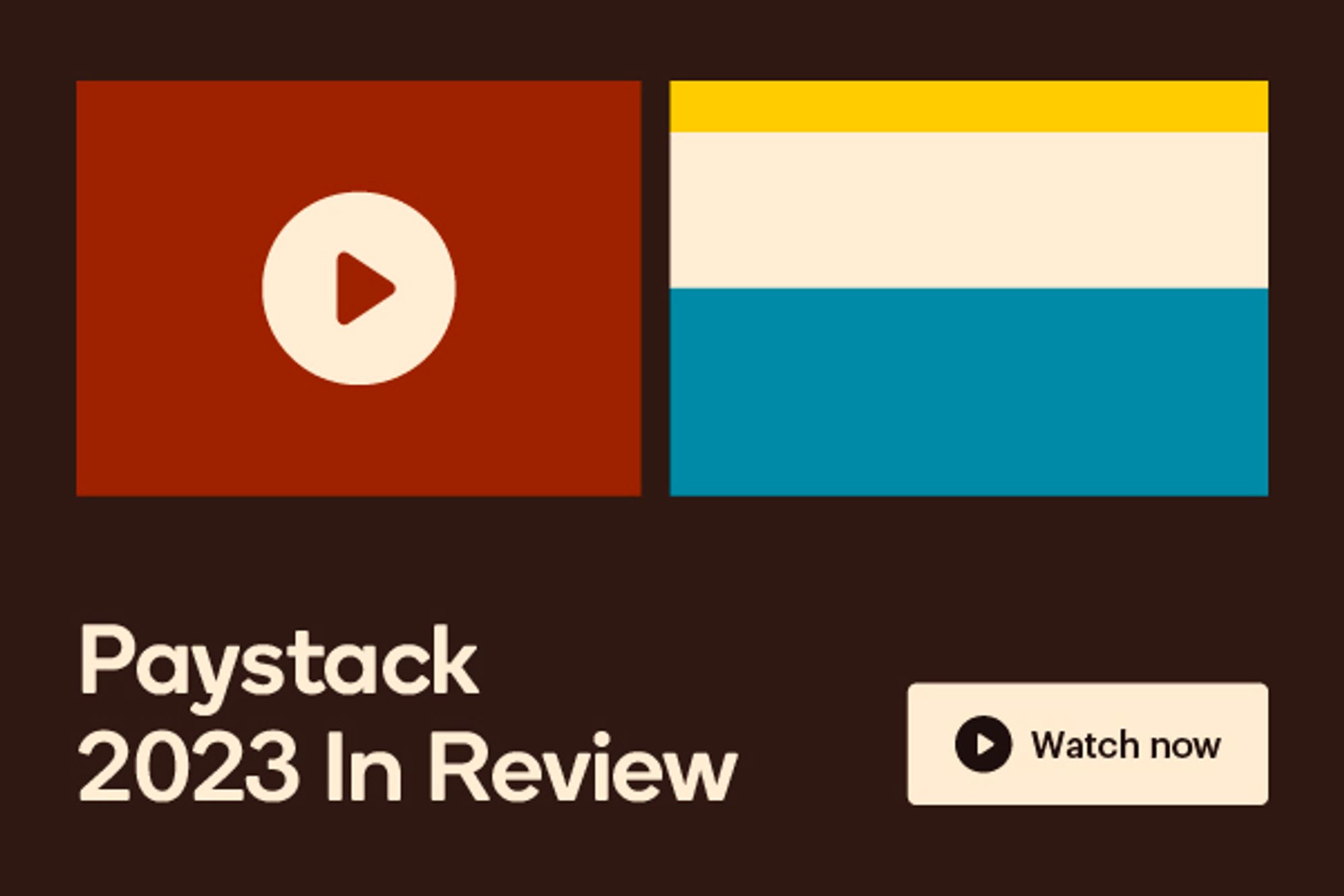- 👨🏿🚀TC Daily
- Posts
- Unspiralling in Africa
Unspiralling in Africa
Plus: Nigeria has withdrawn its controversial cybersecurity levy.


Good morning ☀️
To our readers in the Democratic Republic of Congo (DRC), please stay safe over the next couple of days.
ICYMI: The Congolese military reportedly foiled a coup attempt against Congolese president Félix Tshisekedi who won the country’s first-ever presidential elections in 2018. Three people were killed in a shootout after the perpetrators attacked the home of Vital Kamerhe, a federal legislator who has been convicted for corruption in 2021.
The country was facing a political crisis within President Tshisekedi's ruling party regarding the leadership of parliament. An election for the position, originally planned for May 18, was postponed, leading to tensions.
The Congolese government believes the threat is passed, but tensions are heightened and a little bit of caution over the next week is critical.
Nigeria withdraws cybersecurity levy
Two weeks ago, Nigerians were in arms on social media over a new law that would see them pay a 0.5% tax on every digital transaction they made. In speaking about the cybersecurity levy issued by the country’s apex bank, one critic said, “It’s crazy at this point. This is mass financial strangulation.”
Another dissenter tweeted, “Nigerians are defeated. Nigerians won’t reject this. Nigerians will make noise and pass on to the next news. In the end, Nigerians are owned.”
It looks like Nigeria did reject the bill: On Friday, the Central Bank of Nigeria (CBN), in a circular to all financial institutions, withdrew the bill. “Please be advised that the above referenced circular [the circular that implemented the levy] is hereby withdrawn,” the circular read.
This means Nigerians are no longer at risk of paying the 0.5% tax on every inter-bank transfer, and all other digital transactions. The tax, which would have taken effect today, was a 900% increase from the 0.005% Nigerians presently pay.
At this stage, it is unclear whether public outcry played a role in the CBN’s decision change, in which case, it would mean it’s never ”just Twitter/social media”.
Copia faces a potential shutdown
Copia, a Kenyan e-commerce startup with over $123 million in funding, is on the brink of collapse.
The news: The company announced to its employees through an internal memo that its facing financial difficulties and might have to take drastic measures. These measures could include laying off 1,060 employees or even shutting down the company completely.
“It is important to highlight that uncertainties lie ahead. As a result, it is very likely that there will be a reduction in our workforce and it is possible that the payment of salaries could be at risk,” said Tim Steel, Copia’s CEO, in the internal memo seen by TechCabal.
Steel stated that layoffs would be the first step to control costs, and if that's not enough, the company may have to shut down. In accordance with Kenyan labour laws, impacted employees will be notified one month in advance.
The company is struggling to raise funding: The company informed its employees that it is exploring all options to secure additional funding but the efforts seem abortive. WeeTracker also learned that Copia was already running out of cash and had just a few months of runway left in March.
One of Kenya’s most funded startups: This development comes as shocking news to many as Copia is one of the most funded startups in Kenya. The startup raised $50 million in its last stage funding round in 2022 and $20 million in December 2023. With a network of 50,000 local agents, the startup has served over 2 million customers, fulfilling 13 million orders and reaching underserved markets.
Yet, in 2023, it laid off 700 employees and closed its Uganda operations two years into the market.
Copia now faces a potential shutdown, raising questions about its execution or market adaptation.
Moniepoint is one of Africa's fastest-growing companies

The Financial Times has ranked Moniepoint as Africa’s fastest-growing fintech based on its absolute and compound growth rate. Read more about it here.
CBN wants social media handles linked to bank accounts
You might need to be careful about what you tweet next.
Why? In June last year, Nigeria’s apex bank, the Central Bank of Nigeria, issued a directive mandating banks to append social media handles of users to their accounts. While the move raised concerns about freedom of speech, a fundamental human right, the CBN said the move was to better identify users and prevent crime and terrorism financing.
Of the many critics of the law, one lawyer, Chris Eke, took one step forward and sued the apex bank at a Federal High Court in Lagos. Eke, via his attorney, argued that the rule infringes on his right to privacy, a violation of Section 37 of the 1999 Nigerian Constitution.
“Undemocratic, unconstitutional, null and void”: The presiding judge, Nnamdi Dimgba, ruled days ago that Chris's case was “very ambitious and amounts to a very far throw.” The court said the CBN regulations only applied to financial institutions and not private individuals like Chris. The judge tagged the case “undemocratic, unconstitutional, null, and void.”
What that means is that banks would still require that user’s social media handles be appended when opening an account or using other banking services, as part of KYC checks.
Dimgba likened social media handles to other communication channels like emails and phone numbers, which are considered necessary checks for banks to verify a customer's identity before doing business with them.
Zoom out: Since the CBN issued the directive last year, critics have tagged it as one to stifle the voice of Nigerians who actively share their disdain for the government on social media.
Similar concerns have arisen in other African nations. In Uganda, for instance, a proposed social media tax was seen as a potential tool to discourage dissent. While the tax was eventually scrapped, the episode highlighted the anxieties surrounding government control of online spaces.
There are concerns in Nigeria that the government's recent move could restrict the rights of citizens. This is because the government has a history of trying to pass laws that regulate social media and limit what Nigerians can post online.
Collect payments anytime anywhere with Fincra

Are you dealing with the complexities of collecting payments from your customers? Fincra’s payment gateway makes it easy to accept payments via cards, bank transfers, virtual accounts and mobile money. What’s more? You get to save money on fees when you use Fincra. Get started now.
Spiro secures $50 million loan to expand in Africa
Spiro, an electric vehicle company based in India, has secured a $50 million loan from Afreximbank to invest in its existing African markets.
Why: For the past two years, Spiro has been conducting research in African cities to identify promising markets for expansion. The company sees a growing market for electric vehicles in Africa as the market is estimated to be worth $25.4 billion by 2029.
The company aims to produce 1 million units of motorcycles in 5 years. According to Kaushik Burman, the CEO of Spiro, this is an effort to offer sustainable transportation solutions.
Spiro currently operates in six African countries including Benin, Togo, Kenya, Nigeria, Uganda, and Ghana with plans to expand to two more, Cameroon and Morocco. It has deployed over 12,100 motorbikes and built 300 battery-swapping stations across Benin, its launch country, Togo, Kenya and Rwanda with plans to deploy 1,000 bikes to Uganda before year-end.
More to offer? Spiro believes a successful electric vehicle system needs everything to work together. Hence, it’s building not just fast charging stations, but also a ride-hailing app, special maps, and technology to track their vehicles called the “Internet of Things”.
“It is like Uber but it doesn’t need bikes. But we are making bikes and we are going to be like Uber with a ride-hailing app,” Burman said. In addition, the app will integrate a payment feature and be accessible to both drivers and riders”, Kaushik Burman, the CEO of Spiro said.
Psst! Here’s what Paystack has been up to 🔥

Paystack gives ambitious businesses in Africa the payments tools they need to scale. A lot happened in 2023 - so many improvements, you might have missed some! As we continue building in 2024, here are the 10 stories that shaped our past year 👉🏾 paystack.com/2023
NCC suspends issuing MNVO licences
Last year, the Nigerian Communications Commission (NCC) granted licences to 25 Mobile Virtual Network Operators (MVNO).
Mobile Virtual Network Operators provide similar services like MTN, Glo, Airtel and other telecom providers but don’t own or maintain the cell towers, base stations, and other physical infrastructure that make up the mobile network. Instead, MNVOs lease network access from existing MNOs like MTN or Airtel, which allows them to offer mobile services at potentially lower costs.
While the NCC licensed the 25 MNVOs across different tiers, the regulator is turning its back on providing more licences to other MNVOs, hoping to take a pie off Nigeria’s mobile network market.
The NCC has temporarily suspended issuing new licences to MNVOs across the country. The suspension, which takes effect from May 17, will not affect applications under review,
Why? The regulator, which formerly offered licences across three categories—Interconnect Exchange, Mobile Virtual Network Operator, and Value Added Service Aggregator—says it has halted giving out licences to review competition, market saturation, and market dynamics within its licence cadre.
Why does this matter? Nigeria is among the countries with the most expensive internet subscriptions in the world. Last year’s introduction of 25 MNVOs promised more competition in the mobile network market. With more players offering services, competition could have driven down prices for consumers and potentially led to more innovative service packages—who knows, we might just be getting internet data for cheap.
The suspension of new licenses pauses this potential for increased competition.
Attend GITEX Africa 2024

GITEX Africa returns a second time on May 29–31, 2024, to Marrakech, Morocco, discussing ways to accelerate the continent’s digital health revolution. GITEX is the continent's largest all-inclusive tech event renowned for uniting the brightest minds in the technology industry. Grab your tickets here.
The World Wide Web3
Source:

Coin Name | Current Value | Day | Month |
|---|---|---|---|
| $67,124 | + 0.01% | + 4.80% | |
| $3,123 | + 0.39% | + 2.32% | |
$0.019 | + 60.44% | + 2677.51% | |
| $144.34 | - 1.44% | - 6.64% |
* Data as of 06:20 AM WAT, May 20, 2024.
- TechCabal is set to announce its first set of speakers for the second edition of its Moonshot Conference which is set for October 9–11, 2024, at the Eko Convention Centre, Lagos, Nigeria. Moonshot will assemble Africa’s biggest thinkers, players and problem solvers on a global launchpad for change. If you want to join the stakeholders in Africa’s tech ecosystem for three days of insightful conversations, then get an early-bird ticket at 20% off.
Here's what we've got our eyes on
Written by: Faith Omoniyi & Towobola Bamgbose
Edited by: Timi Odueso
Want more of TechCabal? Sign up for our insightful newsletters on the business and economy of tech in Africa.
- The Next Wave: futuristic analysis of the business of tech in Africa.
- Entering Tech: tech career insights and opportunities in your inbox every Wednesday at 3 PM WAT.
- In a Giffy: business decisions powered by data-driven insights and analysis you can trust.
- TC Scoops: breaking news from TechCabal
P:S If you’re often missing TC Daily in your inbox, check your Promotions folder and move any edition of TC Daily from “Promotions” to your “Main” or “Primary” folder and TC Daily will always come to you.



